Doctor of Nursing Education
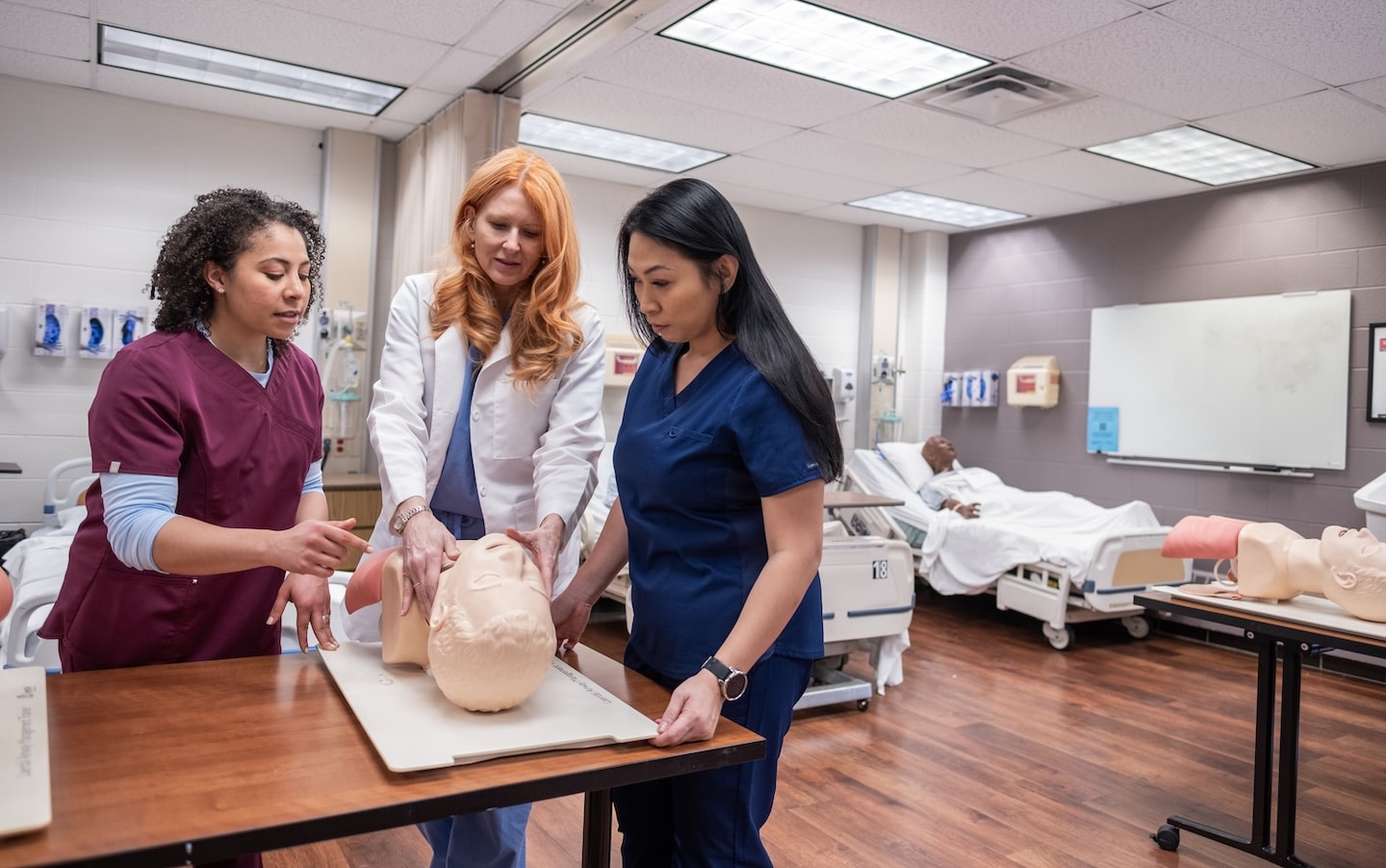
March 1, 2026
August 25, 2026
Overview
The Ohio State University’s online Doctor of Nursing Education (DNE) program qualifies master’s-prepared nurses to become expert nursing education leaders in academia or healthcare settings, such as hospitals, clinics, home care, or communities. In this flexible yet rigorous program, you will be equipped to not only teach but to excel as an effective nursing educator. In this innovative program, courses highlight evidence-based practice, wellness and resilience, and effective use of generative AI within the healthcare industry. The program culminates in a hands-on, evidence-based final project demonstrating your achievement of doctoral-level concepts and outcomes.
Is this Doctor of Nursing Education program for me?
This online nursing education doctorate is the perfect fit if you already have a Master of Science in Nursing (MSN) or equivalent degree, an active RN license or APRN certification, and are ready to take your career to the next level. Choose between the Academic Nursing Education track or the Nursing Professional Development (NPD) track to customize your program to match your career goals. Whether you want to become an expert nurse educator in a college or university setting or effectively teach nursing directly in the healthcare industry, this program will prepare you to plan, implement, and evaluate the best evidence for nursing instruction. This DNE program will equip you to build implementation science that will advance nursing education.
Still have questions? Join an upcoming info session.
-
Register Today!
Doctor of Nursing Education Info Session: Feb. 17, 3:00 p.m. ET
02/17/2026 at 3:00 pm -
Register Today!
Doctor of Nursing Education Info Session: March 17, 3:00 p.m. ET
03/17/2026 at 3:00 pm
NLN CNEA Accreditation
The Ohio State University, Practice Doctorate in Nursing Program with the Doctor of Nursing Education Track, holds initial accreditation from the National League for Nursing Commission for Nursing Education Accreditation (NLN CNEA).
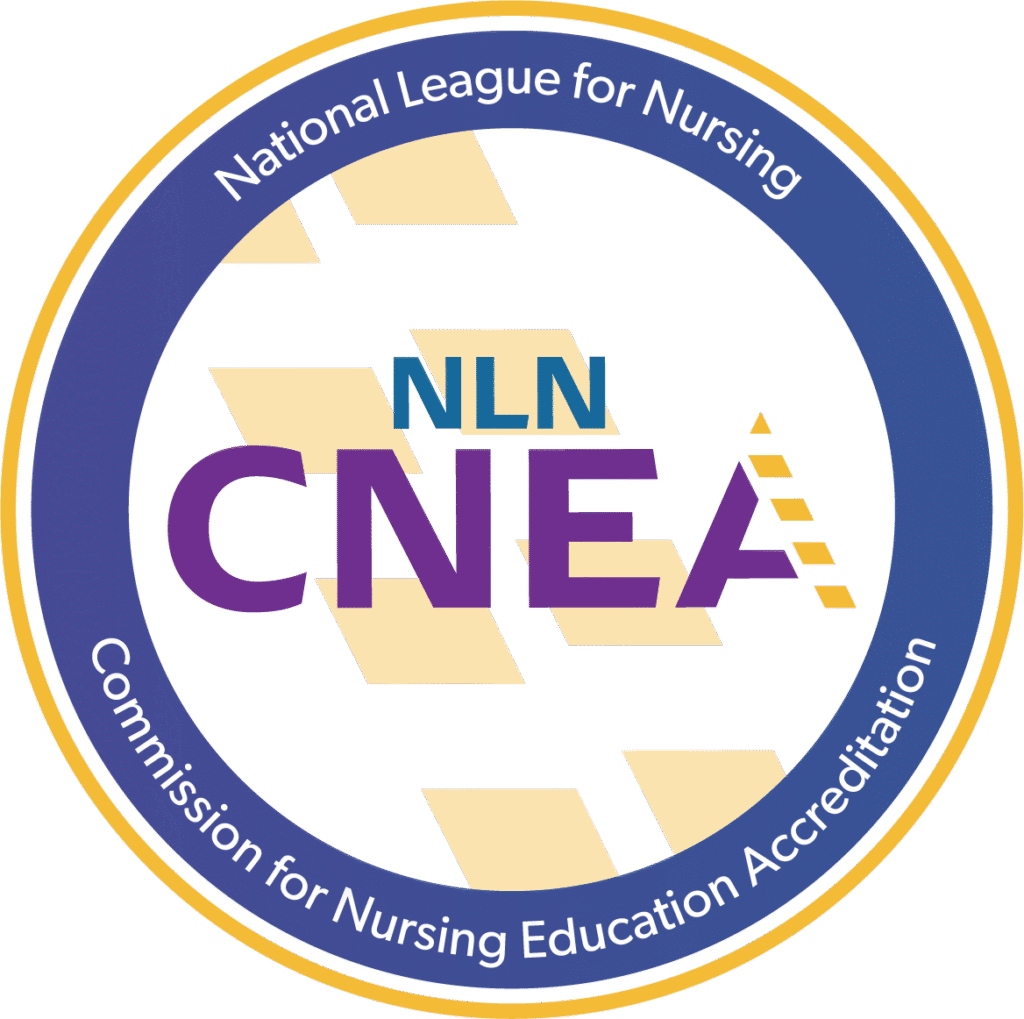
Frequently Asked Questions
The Doctor of Nursing Education (DNE) is a professional nursing doctoral degree aimed at preparing nursing educators with doctoral-level training in teaching skills to educate future nurses to meet healthcare workforce needs. In this online nursing doctorate, you will translate evidence-based teaching principles into innovative nursing education. The program emphasizes leadership in developing practice models, policies, and ethical principles, and applies translational science methodologies to enhance educational scholarship. You will collaborate with cross-functional professional teams to implement strategies that promote critical thinking and clinical decision-making and will prepare you to teach in either higher education or healthcare professional development.
The Doctor of Nursing Education (DNE) program is designed to prepare you to be an expert nursing educator dedicated to teaching clinical skills to prepare the next generation of nurses. This online nurse education degree is distinct from the Doctor of Nursing Practice (DNP) degree which is a professional nursing program that focuses on preparing nurses for the highest level of patient care or healthcare leadership, rapidly translating evidence at the bedside.
There are two tracks within the Doctor of Nursing Education program: Academic Nursing Education and Nursing Professional Development, each with specific coursework in addition to the core DNE curriculum. The Academic Nursing Education track is developed for nurses with earned master’s degrees who seek to teach in college or university-level academic nursing programs to prepare nurses for clinical practice at all levels. The Nursing Professional Development track is targeted to master’s-level nursing professional development practitioners (NPDs) who seek doctoral preparation to educate nurses in healthcare settings to enhance healthcare outcomes.
Once you submit your contact information, a dedicated Enrollment Advisor will connect with you shortly to provide more details about this online program, provide one-on-one guidance, and answer any questions you may have as you navigate the application process. Learn more about the support an Enrollment Advisor offers.
Related Content
Related Content

5 reasons to become a nursing educator
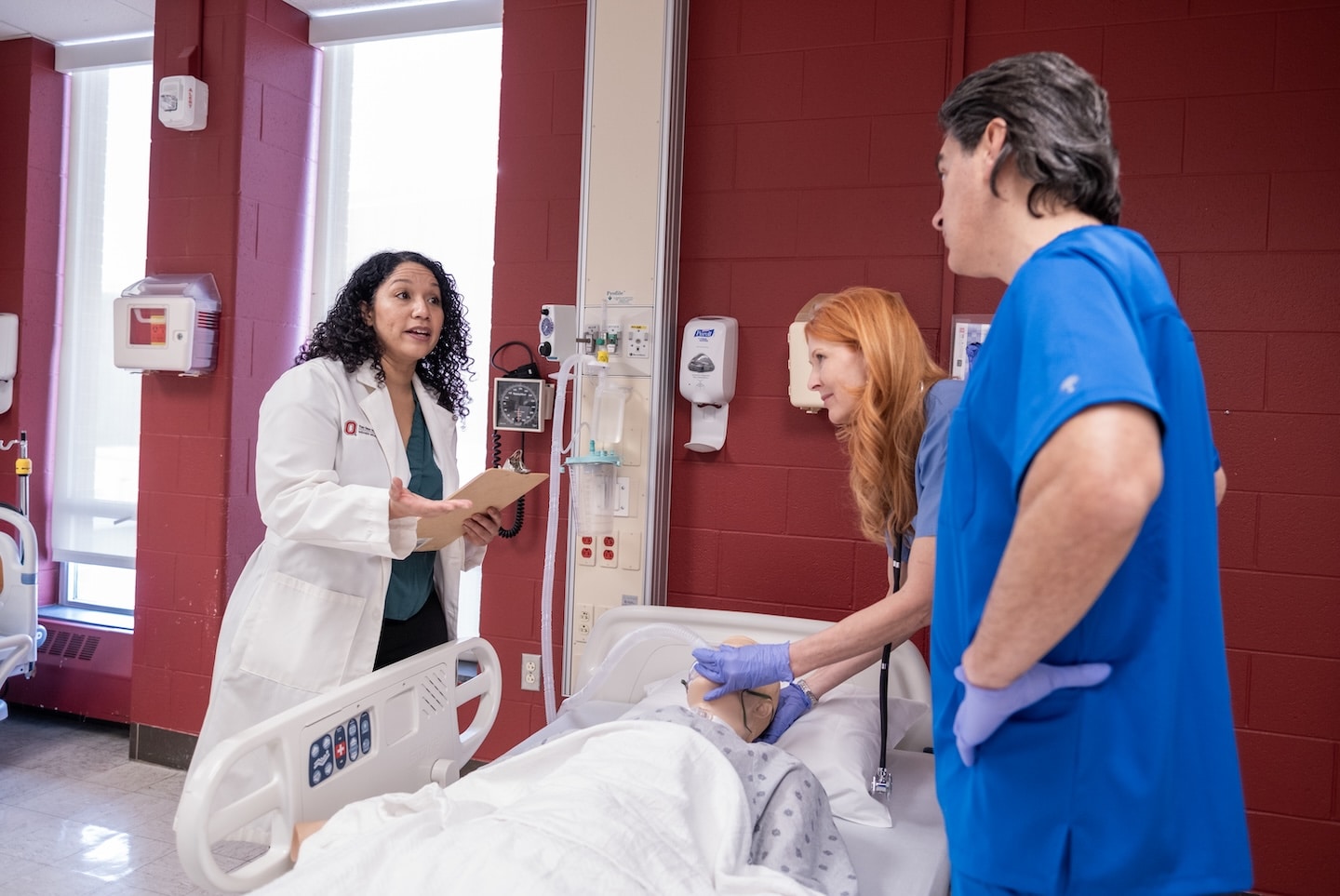
Discussing the Value of Professional Development in Nursing Education

Why choose the Doctor of Nursing Education degree?
Academic Calendar
The Doctor of Nursing Education program admits students once-per-year for the Autumn semester. Students may take classes during each Autumn, Spring, and Summer semester once enrolled. This online nursing education degree typically requires five semesters (2 years) of full-time study or eight semesters (3 years) of part-time study to complete.
Academic Calendar
The Doctor of Nursing Education program admits students once-per-year for the Autumn semester. Students may take classes during each Autumn, Spring, and Summer semester once enrolled. This online nursing education degree typically requires five semesters (2 years) of full-time study or eight semesters (3 years) of part-time study to complete.
Admission Criteria
Completed master’s degree in nursing
- Applicants must have a Master of Science in Nursing (or equivalent degree) from a nursing education program accredited through the CCNE, ACEN, or CNEA. An applicant’s master’s degree must be from an accredited graduate program. Applicants may apply to the DNE program while their master’s degree is still in-progress but must receive the degree by August 1 prior to beginning enrollment.
An active RN license or APRN certification
- Applicants must have an active, unencumbered license as a registered nurse in the state where they practice. Applicants may apply before receiving their RN license, but must be in possession of a current, unencumbered RN license by August 1.
- If an applicant is also certified as an Advanced Practice Registered Nurse (APRN), their national certification must also be active.
A minimum of a 3.0 cumulative GPA on a 4.0 scale in the last degree earned relevant to the program of study
- GPAs are reviewed by Ohio State’s Graduate and Professional Admissions Office. Applicants whose GPAs fall below 3.0 may still apply and be considered for admission.
Recent 3,500 direct care practice hours as an RN or APRN
- This minimum experience requirement equates to approximately two years of full-time employment. This experience must have occurred within the past five years. Applicants must answer questions about their work experience in the online application, as well as include information about their employment history on their resume/CV.
- Applicants who may not meet this requirement may still apply and be considered for admission.
Who We Are Looking For
Your application will be reviewed using a holistic approach, meaning all aspects of who you are as an applicant will be considered. This assessment will include academic preparedness and formative experiences in your professional background, education and life. We are also looking for applicants that demonstrate a preferred set of attributes, experiences and strengths described in the following list. This list is not all-encompassing, but is meant to guide you in what you may wish to highlight in your written application materials and in your recorded online video interview:
- Beginning understanding of the role of a DNE-prepared nurse and the alignment with professional goals for the future.
- Experience with teaching in academia or practice, evidence-based practice (EBP), quality improvement, innovation and scholarship
- Demonstration of leadership, interprofessional collaboration and teamwork
- Evidence of resiliency, ability to overcome obstacles, critical thinking and personal and professional growth
- Diversity of thought, perspective and experience
- Written and oral communication skills, organization of ideas and emotional intelligence
- Overall commitment to nursing education and advancing it forward
How to Apply
You can complete an application online for the next available cohort at The Ohio State University Graduate and Professional Admissions office’s website. A non-refundable $60 fee is required at the time of submission of the application.
In the online application, you will be asked to designate whether you are pursuing the Nursing Professional Development (NPD) track or the Academic Nursing Educator (ANE) track.
To complete your application and verify your degree and undergraduate GPA, you must submit transcripts from all educational institutions you have attended.
Transcripts should be submitted directly by the sending institution by mail or electronic transfer to be considered official. Please request your transcripts be sent early so they arrive before the deadline. Transcripts can be sent to:
The Ohio State University
Graduate Admissions Office
P.O. Box 182004
Columbus, OH 43218-2004
or
gpadocs@osu.edu
- When applying:
- You may upload scanned copies of official transcripts, diplomas, or degree certificates to the online application system. Note: You do not need to submit transcripts for coursework or degrees earned from The Ohio State University.
- These scans help form a complete application packet, but they do not replace the need for official documents.
- What is not accepted. These types of documents will not be used for degree verification or GPA calculation:
- Advising reports
- Unofficial transcripts or scans labeled “UNOFFICIAL”
- Documents with a URL across the top
- Transcripts missing the institution’s name, seal, stamp, or GPA
Exception: You do not need to submit transcripts for coursework or degrees earned from The Ohio State University.
Your resume or curriculum vitae (CV) should use a similar format to what you would use for a job application. You should include your previous education, professional experiences and any community service, volunteer activities, publications, research and leadership experiences on your resume or CV. The resume/CV should include all activities that contribute to the 3,500 hours of direct patient care as an RN or APRN in the past five years. You may submit this document at the time of application or after by way of the Admissions Uploader.
Applicants must upload a purpose and goals statement, including a narrative of professional experience, career goals and match to the goals of DNE education. In this statement, please also address the following prompt:
- Describe a significant problem in academic nursing education or nursing professional development and how you believe a Doctor of Nursing Education (DNE) prepared nurse could solve it.
The statement should address the above prompt and will act as a demonstration of the applicant’s writing skills to the program faculty. The response is not to exceed two double-spaced pages. Consideration will be given to both the quality of the applicant’s writing and the congruence between the stated goals and those of the program.
Applicants may submit this document at the time of application or after by way of the Admissions Uploader.
You are required to complete a recorded online video interview through an online portal called HireVue, during which you will be recorded answering a brief selection of questions regarding your interests in the DNE program. This interview can be completed at any time during the application window. However, we ask that you do so only after you have completed and submitted your application. Note: You must complete the recorded online video interview before the application deadline. For further details, instructions, and links to the online portal click here.
During the application, you will be asked to provide the names and email addresses of two to three (2-3) individuals who can speak to your clinical and leadership abilities. Once your application is submitted, an email will be automatically generated and sent to your recommenders with further instructions on how to submit their letters of recommendation. We encourage you to submit your application far in advance of the deadline so that your recommenders have ample time to upload their letters. Letters of recommendation should not be mailed and you may not personally submit letters of recommendation.
Letters of recommendation should be submitted from individuals who are familiar with your academic ability, professional experience, and potential to succeed a graduate program. Recommenders should address your leadership potential, problem-solving abilities, innovative spirit, recognition of the importance of using evidence to inform nursing education in academia or practice settings, and enthusiasm for the specialty of nursing education. We suggest providing your recommenders with information on the degree and specialty to which you are applying and with a copy of your purpose and goals statement. Finally, make your recommenders aware of the submission process and the application deadline by which they must submit their letters.
One letter of recommendation is required to be submitted by the applicant’s supervisor, if they are currently employed.
Details regarding what English Proficiency tests are acceptable, the scores required, and how to submit scores may be found on The Ohio State University Graduate and Professional Admissions office’s website.
Failure to complete all required steps of this application process by 11:59 pm ET on the day of the posted deadline will result in your application not being considered for admission, with no exceptions.
Most applicants may review the status of their application anytime at appstatus.osu.edu. If you are currently or have been previously enrolled in a degree granting graduate program at Ohio State for any length of time, you are considered a Graduate Intra-University Transfer and can contact nursing@osu.edu to review your application status.

The Ohio State University participates in the State Authorization Reciprocity Agreements (SARA).
SARA is a national initiative that increases student access to distance education courses and programs while maintaining compliance with state regulations. Institutions participating in SARA can offer educational opportunities in all 49 SARA member states, the District of Columbia, the U.S. Virgin Islands and Puerto Rico without seeking individual approval in each state.
California is not a SARA member state, however, OSU may offer online courses and programs to students located in California under the California Private Post-Secondary Act of 2009.
The Application Process
Once you understand your program’s admission criteria, please note the application deadline. You’ll need a quiet space and a variety of materials for your application. To learn more, please see our Admissions page for the full process. Ready to Apply? Find your application here.

Career Outlook
The Doctor of Nursing Education program will broaden your knowledge base and teaching skills within healthcare education, preparing you to lead nursing education and professional training in many types of healthcare organizations. If you are looking for a career as a Postsecondary Nursing Instructor, Medical and Health Services Manager, Postsecondary Teacher, Health Education Specialist, or are looking to advance in healthcare education leadership, then this program can prepare you for that next step in your career.
Top Occupations by Median Income
What They Do
Diagnose and treat acute, episodic, or chronic illness, independently or as part of a healthcare team. May focus on health promotion and disease prevention. May order, perform, or interpret diagnostic tests such as lab work and x rays. May prescribe medication. Must be registered nurses who have specialized graduate education.
Work Activities
Maintain complete and detailed records of patients' health care plans and prognoses. Develop treatment plans, based on scientific rationale, standards of care, and professional practice guidelines. Provide patients with information needed to promote health, reduce risk factors, or prevent disease or disability.
Wage Range
- Entry Level: $97,960
- Mid Level: $129,210
- Senior Level: $169,950
Job Outlook
Bright
Projected Growth
46.3%
Related Careers
- Advanced Practice Psychiatric Nurses
- Clinical Nurse Specialists
- Emergency Medicine Physicians
- Family Medicine Physicians
- Registered Nurses
Job Sectors
- Medicine and Dentistry
- English Language
- Biology
- Psychology
- Customer and Personal Service
What They Do
Demonstrate and teach patient care in classroom and clinical units to nursing students. Includes both teachers primarily engaged in teaching and those who do a combination of teaching and research.
Work Activities
Evaluate and grade students' class work, laboratory and clinic work, assignments, and papers. Supervise students' laboratory and clinical work. Initiate, facilitate, and moderate classroom discussions.
Wage Range
- Entry Level: $47,950
- Mid Level: $79,940
- Senior Level: $130,040
Job Outlook
Bright
Projected Growth
17.9%
Related Careers
- Clinical Nurse Specialists
- Health Education Specialists
- Health Informatics Specialists
- Health Specialties Teachers, Postsecondary
- Registered Nurses
Job Sectors
- Medicine and Dentistry
- Education and Training
- Psychology
- English Language
- Biology
What They Do
Teach courses in health specialties, in fields such as dentistry, laboratory technology, medicine, pharmacy, public health, therapy, and veterinary medicine.
Work Activities
Prepare course materials, such as syllabi, homework assignments, and handouts. Keep abreast of developments in the field by reading current literature, talking with colleagues, and participating in professional conferences. Evaluate and grade students' class work, assignments, and papers.
Wage Range
- Entry Level: $51,760
- Mid Level: $105,620
- Senior Level:
Job Outlook
Bright
Projected Growth
18.8%
Related Careers
- Biological Science Teachers, Postsecondary
- Clinical Nurse Specialists
- Health Education Specialists
- Nursing Instructors and Teachers, Postsecondary
- Recreation and Fitness Studies Teachers, Postsecondary
Job Sectors
- Education and Training
- English Language
- Biology
- Medicine and Dentistry
- Psychology
What They Do
Provide and manage health education programs that help individuals, families, and their communities maximize and maintain healthy lifestyles. Use data to identify community needs prior to planning, implementing, monitoring, and evaluating programs designed to encourage healthy lifestyles, policies, and environments. May link health systems, health providers, insurers, and patients to address individual and population health needs. May serve as resource to assist individuals, other health professionals, or the community, and may administer fiscal resources for health education programs.
Work Activities
Prepare and distribute health education materials, such as reports, bulletins, and visual aids, to address smoking, vaccines, and other public health concerns. Develop and maintain cooperative working relationships with agencies and organizations interested in public health care. Maintain databases, mailing lists, telephone networks, and other information to facilitate the functioning of health education programs.
Wage Range
- Entry Level: $42,210
- Mid Level: $63,000
- Senior Level: $112,900
Job Outlook
Bright
Projected Growth
7%
Related Careers
- Community Health Workers
- Health Informatics Specialists
- Healthcare Social Workers
- Nursing Instructors and Teachers, Postsecondary
- Rehabilitation Counselors
Job Sectors
- Customer and Personal Service
- Education and Training
- English Language
- Administrative
- Psychology
What They Do
Plan, direct, or coordinate medical and health services in hospitals, clinics, managed care organizations, public health agencies, or similar organizations.
Work Activities
Direct, supervise and evaluate work activities of medical, nursing, technical, clerical, service, maintenance, and other personnel. Develop and maintain computerized record management systems to store and process data, such as personnel activities and information, and to produce reports. Plan, implement, and administer programs and services in a health care or medical facility, including personnel administration, training, and coordination of medical, nursing and physical plant staff.
Wage Range
- Entry Level: $69,680
- Mid Level: $117,960
- Senior Level: $219,080
Job Outlook
Bright
Projected Growth
28.5%
Related Careers
- Clinical Nurse Specialists
- Emergency Medicine Physicians
- Health Education Specialists
- Health Informatics Specialists
- Social and Community Service Managers
Job Sectors
- Administration and Management
- English Language
- Customer and Personal Service
- Personnel and Human Resources
- Education and Training
What They Do
Teach vocational courses intended to provide occupational training below the baccalaureate level in subjects such as construction, mechanics/repair, manufacturing, transportation, or cosmetology, primarily to students who have graduated from or left high school. Teaching takes place in public or private schools whose primary business is academic or vocational education.
Work Activities
Observe and evaluate students' work to determine progress, provide feedback, and make suggestions for improvement. Present lectures and conduct discussions to increase students' knowledge and competence using visual aids, such as graphs, charts, videotapes, and slides. Supervise and monitor students' use of tools and equipment.
Wage Range
- Entry Level: $38,680
- Mid Level: $61,490
- Senior Level: $106,580
Job Outlook
Below Average
Projected Growth
0.1%
Related Careers
- Career/Technical Education Teachers, Middle School
- Career/Technical Education Teachers, Secondary School
- Engineering Teachers, Postsecondary
- Special Education Teachers, Elementary School
- Teaching Assistants, Special Education
Job Sectors
- Education and Training
- English Language
- Mechanical
- Customer and Personal Service
- Mathematics
National occupational information in Ohio State Online’s Career Outlook tool is sourced from O*NET Online and the U.S. Bureau of Labor Statistics (BLS). The median annual wage displayed to the right of each occupational title above is based on the BLS Employment Projections program. Outlook and percent change indicate projected growth or decline over the next 10 years.
Curriculum
Courses in the Doctor of Nursing Education program are 100% online with no on-campus requirements. Classes include a synchronous meeting component, meaning there are specific days and times each week when you can attend class, participate with your classmates, and build a community with your fellow doctoral scholars. Each class meets only once a week, on a weekday, and may be offered during the day ranging in time from 9 a.m. to 8:30 p.m. EST depending on the specific class.
You will learn evidence-based practice (EBP) and how to incorporate EBP in academic nursing education and nursing professional development (NPD). An emphasis on the steps of evidence-based practice will be utilized that is applicable to academic and practice settings. Students will select a topic in academic nursing education or NPD practice and build EBP synthesis tables.
Includes an overview of the science of behavior change, dimensions of wellness, self-care, resilience, and how you can integrate these concepts with healthcare professionals and organizations as a leader. Incorporates methods to evaluate and create strategies for teaching and leading wellness and resilience in nursing education.
Concepts and principles of nursing scholarship methods and measurement for DNE level nursing practice. This course will assist you in outlining the steps for the Doctor of Nursing Education Capstone project proposal.
You will learn and apply evidence-based teaching strategies for interprofessional education (IPE) and interprofessional continuing education (IPCE) for all academic and practice settings.
Students learn alignment of the organization and program’s vision, mission, values, and goals to inform, design, and implement a nursing curriculum. Curriculum design includes the incorporation of national standards and clinical considerations in the practice of nursing.
You will assess and evaluate leadership situations and persist in using concepts and strategies, such as collaboration, communication, politics, team-building, and emotional intelligence. Includes assessment and consideration of workplace culture and principles of strategic planning.
Principles and processes involved in the assessment and evaluation of student learning, courses, curricula, program outcomes, and teaching practices. Also includes considerations of assessment and evaluation of registered nurses in the practice setting.
The primary focus of this course is the differentiation of best pedagogical practices for effective teaching in clinical settings.
This course will address the trends in healthcare initiatives as they pertain to best educational practices. You will learn how innovation and technology may be utilized to address these initiatives.
Provides an opportunity for socialization of students into doctoral work related to scholarly writing. This course will provide practical approaches for integrating and synthesizing theoretical content from previous or concurrent coursework in the area of nursing education or special interest for publication.
Theoretical and practical approaches to creation of learning experiences for nursing and health education with an emphasis on backward design and evidence-based instructional design strategies.
Understanding Online Course Types
As you research the right online program for you, you likely will come across the terms “asynchronous” and “synchronous.” Learn what these terms mean and how they’re important to consider when understanding how a program will fit into your life.
Learn More

Program Faculty
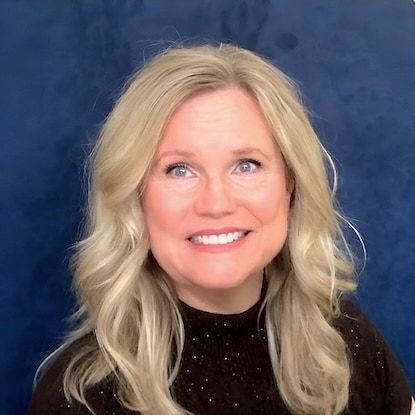
Tara King PhD, RN
Director, Doctor of Nursing Education Director, Associate Clinical Professor
Dr. Tara Spalla King has 20 years of experience in acute care nursing practice and 20 years of experience as a nurse educator, several of which have been in an administrative capacity. Dr. King is an experienced onsite evaluator for the Commission on Collegiate Nursing Education, a team leader, and an accreditation review committee member. She is a peer reviewer and editorial board member for the Journal of Nursing Education, a national publication. She is also a peer reviewer for Nurse Education in Practice, a publication based in the U.K.
Dr. King’s prior research focused on utilizing web-conferencing technology to connect disparate groups of college students, a project that earned her the Loadman Dissertation Award for Outstanding Dissertation, OSU Higher Education and Student Affairs, 2013. She is actively involved in global initiatives, particularly in a mentorship role for faculty in global education projects. She shares this knowledge through consulting with faculty before collaborative online international learning (COIL) initiatives across the globe.
At OSU CON, Dr. King was the principal investigator for a national needs assessment for terminal degrees for nurse educators and led curriculum development for a novel terminal degree, Doctor of Nursing Education (DNE).
Tara O’Brien, PhD, RN, CNE
Co-Director, Doctor of Nursing Education Program; Assistant Professor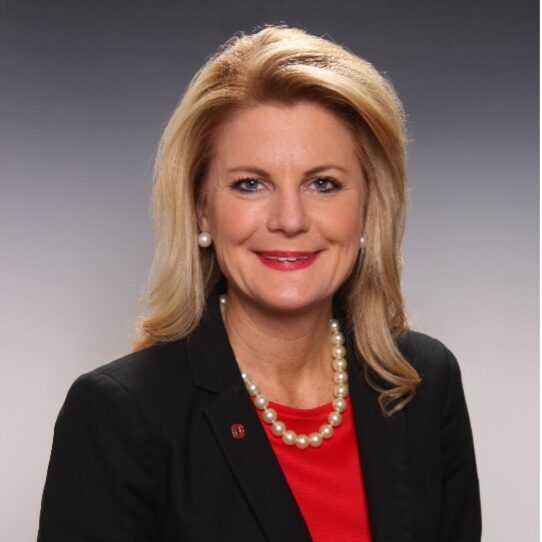
Wendy Bowles, PhD, APRN-CNP, CNE
Associate Clinical Professor and Associate Dean for Baccalaureate Programs
Paula Garvey, DNP, RN, NPD-BC, CHSE
Assistant Clinical Professor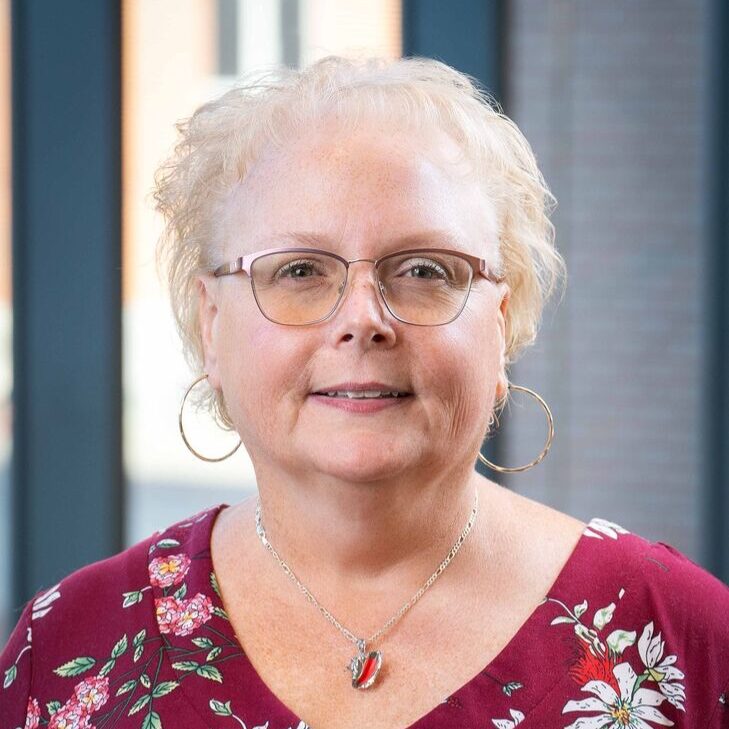
Teri Chenot, EdD, MS, MEd, MSN, RN, CCE(ACBE), FNAP, FAAN
Clinical Professor
Amy Jauch, DNP, RN, CNE
Assistant Clinical Professor and Assistant Dean of Baccalaureate Nursing Programs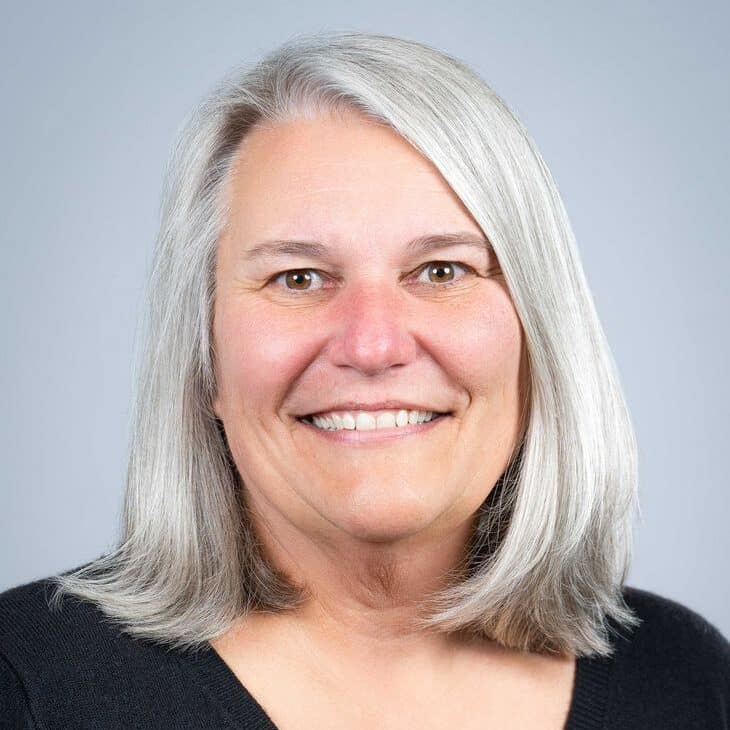
Joni Tornwall, PhD, RN, ANEF
Associate Clinical Professor and Co-Director, Academy for Teaching Innovation, Excellence and Scholarship (TIES)
Shaunta Stanford, EdD, APRN-CNP, ANCP-BC, CCRN
Assistant Professor of Clinical Practice and Senior Director of Community-Engaged Academic Pathways
Testimonials
Hear why students like you are choosing The Ohio State University!
Testimonials
Hear why students like you are choosing The Ohio State University!
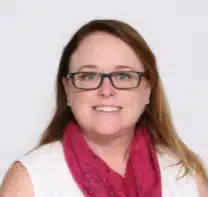
The faculty are supportive, our cohort is close (even though we live all over the country), and the content we learn is applicable to every aspect of nursing education.

Wellness is not only preached, but actually practiced. The fact that it is actually embedded into the program as a course encourages and challenges us to take proactive measures to live well, in whatever capacity that we can.

The best part is the curriculum. I have thoroughly enjoyed every course and enhanced my knowledge in many ways. And my second favorite thing is my new friends from all across the country.

The interaction with my classmates was amazing. The support I felt from all of them at one time or another was uplifting. The synchronous classes and group projects let us get to know each other and become invested in each other's success. This is the most cohesive group of students I have ever experienced in all my time taking classes.
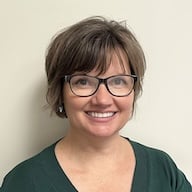
Nurse educators are very collaborative people, and I have found the Doctor of Nursing Education students at Ohio State to be some of the most giving and inspirational people I have ever met.

What stood out to me is the character of the leaders of the program. They are smart, tough, but most importantly they are genuine and I truly feel like they care about the outcomes of the students. They believe in us, and it makes it easier to believe in myself because of that.
Tuition fees are subject to change. The table above serves as a guide and not an official bursar’s bill. Full-Time costs are total tuition costs per semester.
Financial Aid Resource
Financial Aid Resource
Related Articles
Related Articles

How to ask your employer for tuition reimbursement
How to Pay for Your Online Program

How to find and transfer prerequisite courses to Ohio State: A step-by-step guide
Get Started
Connect with a knowledgeable Enrollment Advisor who can help answer your questions and explain different aspects of the more than 80 online degrees and certificates offered at Ohio State. They are here to help you on your education journey.




